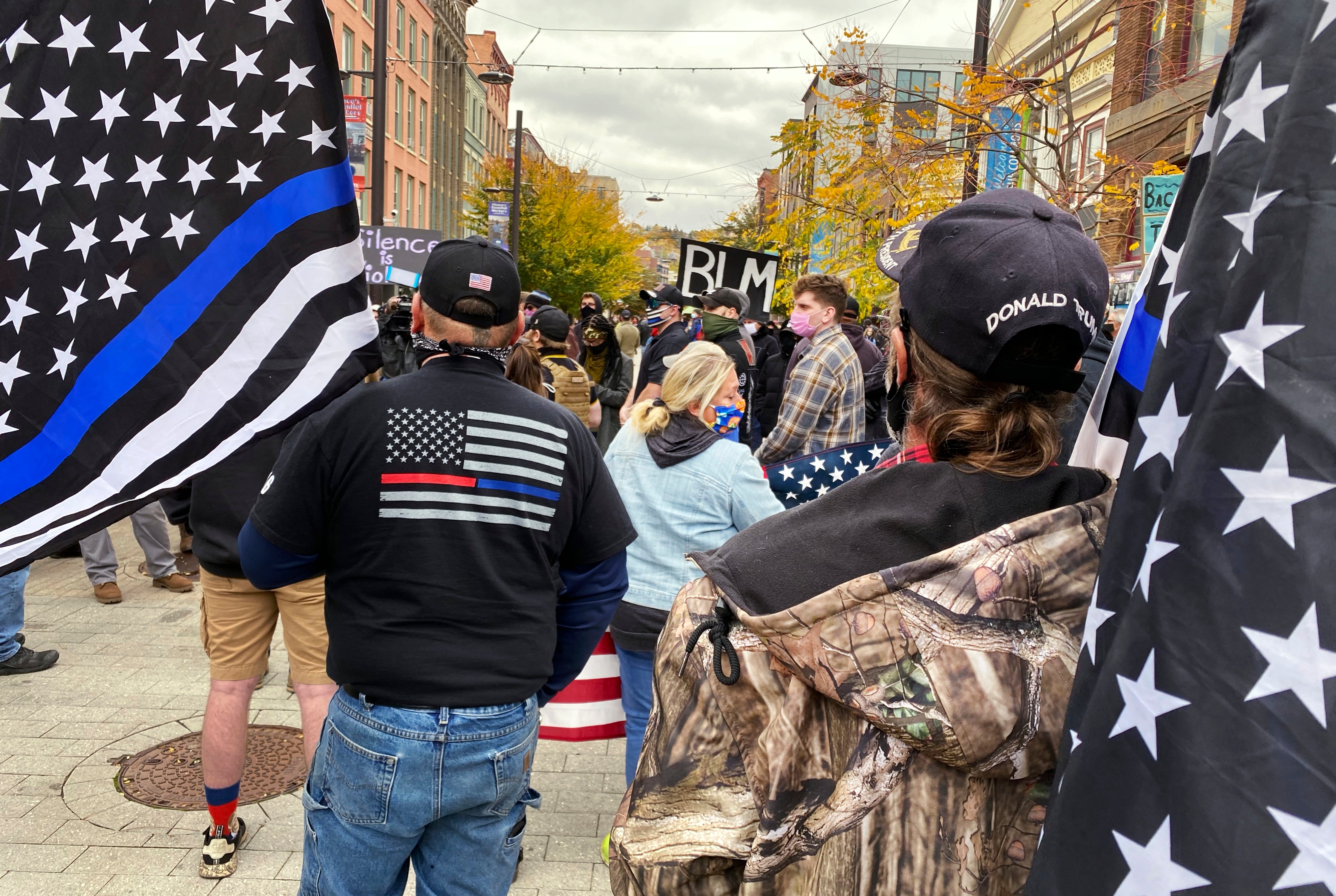Ivy League town weighs revamping police; critics see flaws
The nationwide reexamination of policing after the killing of George Floyd has led an Ivy League town in New York to consider an ambitious and contentious plan to remake its force

The nationwide reexamination of policing after the killing of George Floyd has led an Ivy League college town in upstate New York to consider an ambitious — and contentious — plan to remake its force “from the ground up.”
The proposal would replace the 63-officer Ithaca Police Department with a new Department of Community Solutions and Public Safety comprising both armed officers and unarmed “community solution officers” to handle nonviolent calls like petty thefts.
As city council members consider the plan, the cross-current of impassioned reactions illustrates the challenges of overhauling traditional police forces.
Police officers have denounced the plan in Ithaca — a picturesque city of about 30,000 residents that is home to Cornell University and in the heart of Finger Lakes wine country — as a radical idea that could threaten public safety.
Some social justice activists dismiss it as a diluted version of what they call “defunding the police," one that will do little to help Black communities. But supporters say the dramatic change is needed to heal a damaged relationship between city police and communities of color.
“You start with a new department; it’s a chance to build a culture from the ground up that rewards our employees for their community engagement effort,” Ithaca Mayor Svante Myrick said in an interview this week. “That sets a very clear expectation, not just for conduct ... but also for community interaction.”
Ithaca is among more than 500 localities across New York state told to adopt a plan to reform police policies by April 1 or risk a loss of state funding.
Gov. Andrew Cuomo, a Democrat, ordered the plans last year during the wave of demonstrations nationwide after Floyd's death at the hands of Minneapolis police. From New York City to small upstate towns, localities came up with proposals on training, recruitment and community engagement.
The draft report released late last month for Ithaca and surrounding Tompkins County included the proposal as recommendation No. 1, along with more than a dozen other reform proposals. The Ithaca city council can accept, reject or modify the recommendations when it votes on a resolution Wednesday.
If the proposal is implemented, armed police officers would concentrate on preventing and solving serious crime, according to the draft report.
Unarmed first responders would handle less perilous calls for things like stolen bicycles or televisions. Proponents also hope to attract a more diverse workforce in a city where white people make up two-thirds of residents and 80% of the sworn officers, according to the report.
The debate in Ithaca comes as activists nationwide call to shift money from law enforcement agencies to social services. Some cities have responded by reducing police budgets. Portland, a hot spot for demonstrations, cut several police programs from its budget.
Myrick, son of a Black father and white mother, said the new department would likely end up getting more money initially. The Democratic mayor said the proposal answers the community's desire for a better public safety presence — not necessarily a smaller one.
“They still want people to respond when you’re having trouble or you’re in danger,” he said. "They just want that response to be more diverse, more in touch with the community and less militarized."
Assurances that Ithaca's current officers would be able to keep their jobs and civil service benefits has not quelled sharp criticism from the officers, who have been without a contract for more than nine years. Some officers call it a union-busting move.
Ithaca Police Benevolent Association Thomas Condzella has written that officers feel betrayed and angry. Officers say they're open to reform, but not dismantling the department.
“Without serious changes to proposal No. 1, the city of Ithaca will lose so many well-trained officers, which will most likely happen rather quickly. This will leave the city vulnerable,” Officer Benjamin Buck told the council during a Zoom meeting Wednesday night.
But where officers see too much change, some activists see too little.
Black Hands Universal founder Harry Smith said that given the systemic problems with the justice system, creating a new department is like putting another patch on an old tire. Cornell history professor Russell Rickford, who focuses on the Black radical tradition, said he and members of the Tompkins County Antiracist Coalition are “deeply skeptical” of the plan.
“We fear that it is an effort to rebrand policing while suppressing or erasing the fundamental demand for massive police defunding that arose in the context of the George Floyd and Breonna Taylor uprisings,” he wrote in an email.
Supporters of the plan stress the need for change, even if it's an imperfect or a first step.
Members of the group Community Leaders of Color wrote in a letter supporting the recommendations that too many people are reluctant to call police for help, seeing the officers as hunters and themselves as prey.
Reading a portion of the letter she co-signed, Laura Branca on Wednesday night urged council members not to let perfection be the enemy of the good.
"To do nothing because the plan doesn’t handle everything seems misguided,” Branca said. “On which side of history do you want to stand?”
Bookmark popover
Removed from bookmarks